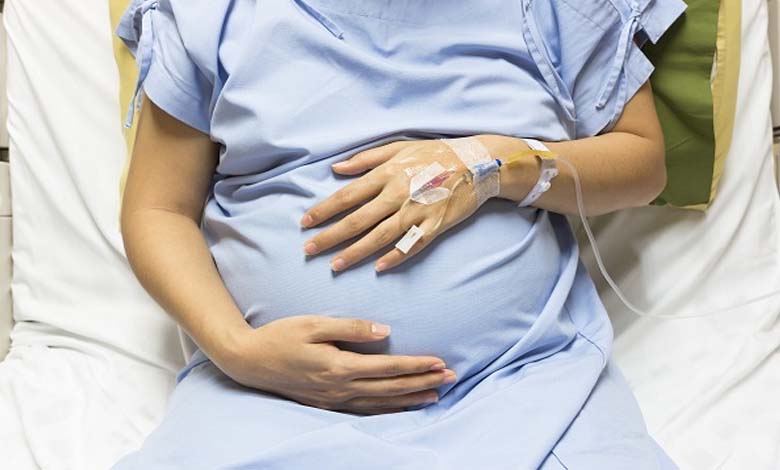Contracting Covid-19 During Pregnancy May Increase the Risk of Autism in Children: A Scientific Hypothesis Under Scrutiny

Since the beginning of the pandemic, scientists have been exploring how SARS-CoV-2 infection might affect fetal development. While early studies focused on immediate obstetric complications, recent findings raise a more complex concern: catching Covid-19 during pregnancy may increase the likelihood of autism spectrum disorder (ASD) in children. Although this link remains tentative, it draws attention to the intricate connection between maternal infection, inflammation, and fetal brain development.
-
Could the Covid-19 vaccine help fight cancer?
-
Experts Urge China for “Transparency” to Prevent another COVID-19 Scenario
Researchers in the United States, whose findings were published in JAMA Network Open, analyzed data from more than 60,000 pregnant women between 2020 and 2023. About 5,000 of them contracted Covid-19 during pregnancy. Over a two- to three-year follow-up, children born to infected mothers showed a slightly higher rate of autism diagnoses compared to those whose mothers were not infected. However, the scientists emphasized that the increase was relative and does not prove direct causation.
One leading hypothesis centers on the inflammatory response triggered by the virus. When a pregnant woman contracts Covid-19, her immune system releases cytokines—molecules that mediate inflammation—which can sometimes cross the placental barrier. This fetal inflammation may disrupt brain development, especially in areas responsible for social communication and behavioral regulation.
-
Can COVID-19 Fight Cancer? A Study Reveals a Surprise
-
AstraZeneca Begins Withdrawing COVID-19 Vaccine Worldwide
This phenomenon is not unique to Covid-19. Previous research has linked certain viral or bacterial infections during pregnancy, such as influenza or rubella, to a higher likelihood of neurodevelopmental disorders. What distinguishes SARS-CoV-2 is its systemic impact on the maternal body and the psychological stress associated with the pandemic, both of which may amplify developmental risks.
Timing also matters. Infections during the first or second trimester appear to carry greater risk, as these are critical stages of rapid neural growth and structural organization. Infections occurring later in pregnancy, while less likely to affect brain development, can still lead to complications such as preterm birth.
-
Tunisia records first case of new COVID-19 variant
-
“Norovirus”… “Explosive” strain of COVID-19 raises concerns in Britain
Experts nonetheless urge caution. Dr. Elizabeth Thorne, a neurobiologist at the University of California, notes that “correlation does not equal causation,” emphasizing that many variables—genetic, environmental, nutritional, and psychological—can influence autism risk. Most children born to mothers infected with Covid-19 during pregnancy show entirely typical development.
Vaccination during pregnancy could also mitigate potential risks. Several studies have found that vaccinated pregnant women are not only better protected from
severe Covid-19 but also exhibit reduced systemic inflammation, which may indirectly safeguard fetal brain development.
-
Covid-19 – 4 ways to reduce severe forms
-
Concern in China after an increase in respiratory diseases… Will COVID-19 restrictions return?
Psychological stress must also be considered. The uncertainty and anxiety experienced by expectant mothers during a global pandemic can themselves affect fetal brain maturation. Therefore, it would be simplistic to attribute a potential increase in autism risk solely to viral infection without acknowledging the broader psychosocial context of pandemic pregnancies.
The authors of the study call for long-term, large-scale research to better understand how maternal immune responses and inflammation interact with fetal neurodevelopment. Such work could lead to improved preventive strategies—not only for Covid-19 but for a range of prenatal infections that may influence neurological outcomes.
-
Health/Covid-19: New vaccines in perspective
-
France/Covid-19: Despite the decline in cases, the toll remains heavy
In summary, while emerging data suggest a possible association between maternal Covid-19 infection and a slightly increased autism risk in offspring, this relationship remains unproven. Ongoing studies will need to clarify whether the virus itself, maternal inflammation, or multiple interacting factors are responsible. What remains clear is the importance of vigilant prenatal care, vaccination, and infection prevention for pregnant women to ensure the healthiest possible outcomes for their children.












